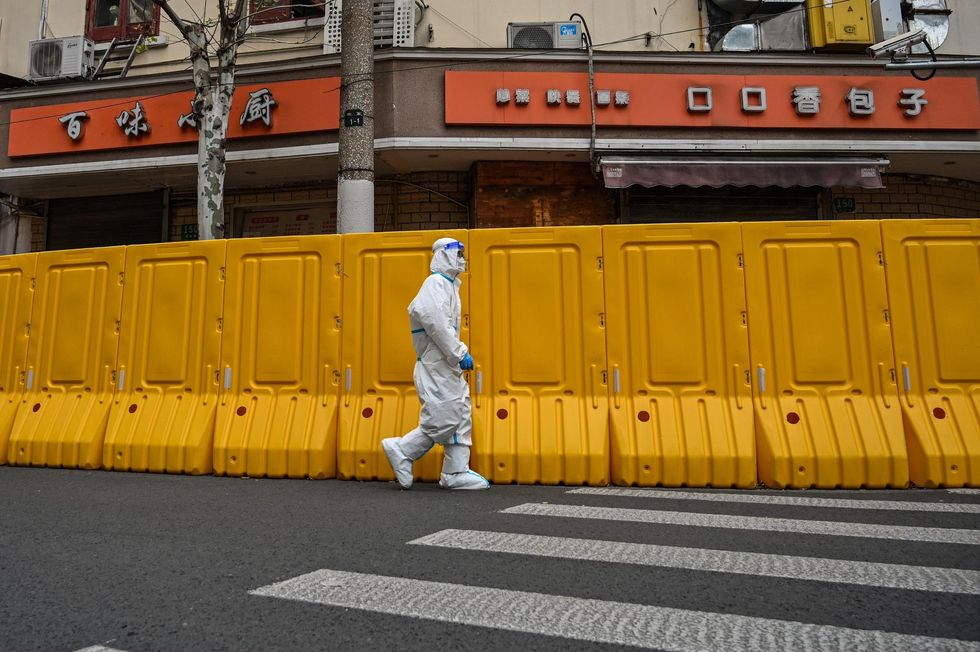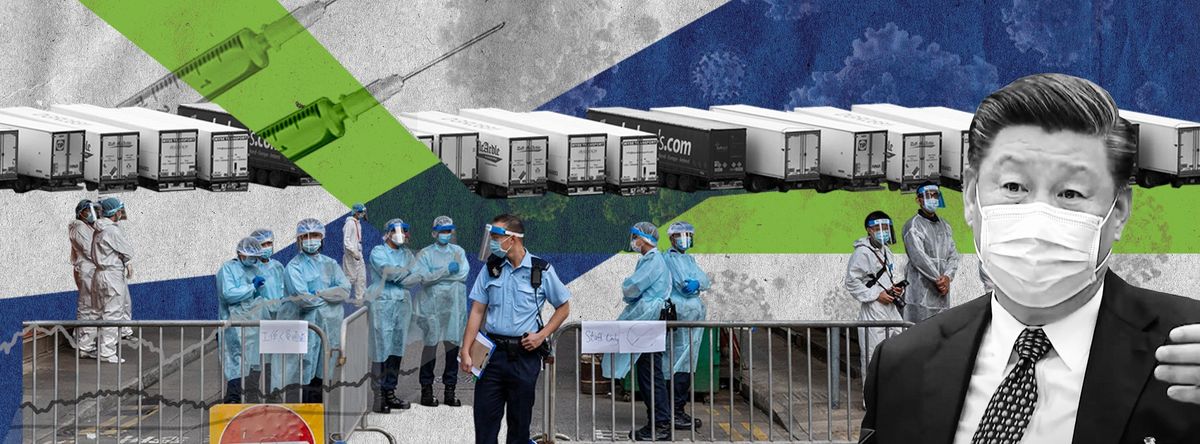In the developed world, Covid-19 has gone from pandemic to endemic. Americans and Europeans have long ditched their harshest restrictions and learned to “live with the virus.”
Not so in China. Two years after the coronavirus was first detected in Wuhan, the Chinese government is sticking to its “zero-Covid” strategy of draconian city-wide lockdowns at the first sign of infection. As a result, the country’s richest and largest metropolis is now facing unprecedented food shortages and civil unrest.
A global trade and financial hub home to 26 million people, Shanghai is in its second week of lockdown amid record numbers of cases, with many residents banned from leaving their homes, food and water shortages reported, and economic activity ground to a halt. While most cases appear to be asymptomatic and no deaths have been reported, the harsh measures have pushed Shanghai denizens to the brink and overwhelmed the government’s ability to care for them.For most of the pandemic, China’s zero-Covid policy worked extremely well at containing outbreaks, minimizing hospitalizations, and preventing deaths. While the rest of the world struggled to go back to normal, the Chinese economy rebounded quickly.
Want to understand the world a little better? Subscribe to GZERO Daily by Ian Bremmer for free and get new posts delivered to your inbox every week.
But community spread of the highly infectious Omicron variant has made this playbook impossible to pull off. It has also made the policy increasingly costly for China’s and the global economy, as Omicron is forcing the Chinese government to mount more frequent and severe lockdowns that disrupt Chinese citizens’ lives, domestic economic activity, and global supply chains.
 A government worker walks by a locked-down neighborhood in Shanghai.Hector Retamal/AFP via Getty Images
A government worker walks by a locked-down neighborhood in Shanghai.Hector Retamal/AFP via Getty Images
Although the caseload in Shanghai is low by American and European standards, the very success of zero-Covid has made China especially vulnerable to even small outbreaks, deterring the government from abandoning the policy in favor of a more sustainable approach.
Back in January, I and my colleagues at Eurasia Group (the political science firm I lead) predicted this would be the top geopolitical risk for 2022. We said that while zero-Covid was clearly not fit for purpose against Omicron, the Chinese government would be very unlikely to acknowledge this and pivot away from the policy. Instead, we thought, Xi Jinping was likely to double down on the failed approach:
Keeping the country locked down for two years has now made it more risky to open it back up. It's the opposite of where Xi wants his country to be in the run-up to his third term, but there's nothing he can do about it: The initial success of zero Covid and Xi's personal attachment to it makes it impossible to change course. China's policy will fail to contain infections, leading to larger outbreaks, requiring in turn more severe lockdowns. This will in turn lead to greater economic disruptions, more state intervention, and a more dissatisfied population.
The reason I don’t say that is because Xi has a third option he simply refuses to consider: to accept Western-made mRNA vaccines that do work against Omicron and that would let China open up in short order without risking massive health consequences. There is a large surplus of vaccines globally that China could easily tap into, if only Xi could let his pragmatism get the better of his nationalism. Alas, the Chinese government is unwilling to license Pfizer and Moderna shots, instead banking on the development of homegrown mRNA vaccines that won’t be ready in large numbers until year-end at the earliest.
The fact is Xi doesn’t need to pick between perpetual lockdowns and uncontrolled Covid killing millions; he is choosing to. That choice will lead a lot of Chinese to lash out in frustration, as we’ve been seeing already in Shanghai.It also means that the Chinese government is going to have a very tough time meeting its goal of >5% GDP growth without reneging on its priority to deleverage and rebalance the economy. The cost of the Shanghai lockdown alone is estimated to be about $46 billion per month, close to 3% of China’s GDP. In fact, not only is that reform program getting kicked down the road, but the Chinese will need to engage in even more fiscal stimulus to meet their growth goal, which will only make the economic pain greater once the bubble finally does get pricked.
Ultimately, that’s what China’s insistence on zero-Covid will achieve on every front: to delay the inevitable at great cost to itself and the global economy.
🔔 And if you haven't already, don't forget to subscribe to my free newsletter, GZERO Daily by Ian Bremmer, to get new posts delivered to your inbox.



















